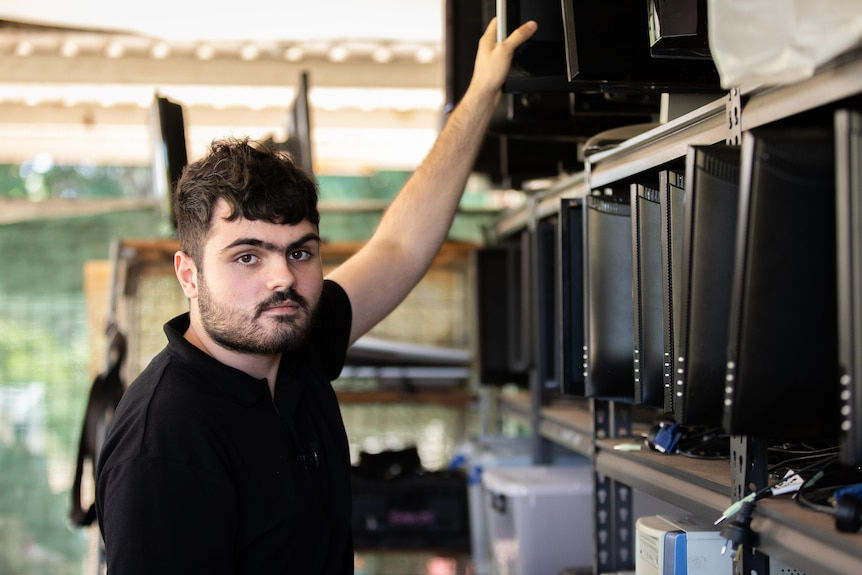Perth teenager upcycles discarded electronics
- World Half Full

- May 15, 2022
- 3 min read
Updated: Jan 5, 2024
BUSINESS/ENVIRONMENT

At a house in Perth’s south-east, broken tablets, laptops, desktop computers and phones stack up the walls, waiting for Sam’s nifty hands to breathe new life into them. Sam Thomas, 18, runs an e-waste collection point where he repairs broken and thrown-away electronics to give away for free to those in need.
“We have maybe 60, 70 desktop PCs that are either needing to be fixed or that are fixed and ready to go,” he says. “Phones, iPads, all that. We’ve got tons of them. We have hundreds of different pieces of tech.”
Computers and laptops began arriving after a single post on social media, and Sam’s Spares was born. “We did a post one day just asking for anyone with junk they wanted to get rid of, to drop it off,” Sam says. “You might look at a computer that’s 10 years old and think it might not be usable.”
But Sam says basic upgrades are often all that’s needed for a piece of tech to meet the needs of most people. “I like computers. I’ve always had a very big interest in the hardware side, and later on the coding side,” he notes. “I’ve got this skill I can give freely to people, so why not?”
Sam’s project has grown beyond his local community in the outer suburb of Gosnells, with some willing to travel long distances to support his work. “We’ve seen people come from Fremantle, some from Bunbury. We have people messaging us saying, ‘we’re getting together a load of stuff for you!’,” he says. Bunbury to Gosnells is about 160kms!
Generous donations from the community mean Sam sometimes has hundreds of old computers, laptops and phones that need a space to be stored and repaired. Most of it sits in a carport of a house Sam’s family has repurposed as a community hub. His mother Diane Lloyd says she saw the home as an opportunity to rekindle a sense of local connection.
The Jacaranda House, as it’s known, offers a place for neighbours and locals in the community to meet. Diane says people who turn up and meet Sam for the first time often think he’s older than he is. “They don’t believe he’s 18. I think he’s got a very mature view of the world,” she says.
People are often also surprised to hear Sam is autistic and has Tourette’s syndrome. He says the conditions manifest in a variety of ways, and seldom mirror how they’re represented in movies and television. “I come across as a very standard person,” he says and hopes people don’t overlook his ability to help when they learn about his conditions. “I’ve got this autistic-slash-autism tag on me, so people automatically assume I can’t do certain things.”

A big part of Sam’s project is reducing the volume of e-waste that ends up in landfill. Diane says sustainability is part of their family ethos. “You start researching what tiny percentage of [e-waste] is actually being recycled,” she explains. “When we say ‘e-waste’, the things that people are throwing away are not waste. Some of the stuff is really valuable. So if Sam can do his part to stop things going in the rubbish bin, that’s brilliant.”
Sam emphasises that even if old electronics are beyond repair, there’s a proper way to dispose of them. “Even if you want to drop stuff off to be sent to the proper facilities . . . we will take everything. Even if it’s broken,” he says.
Sam has dreams of expanding the project beyond the confines of his family’s house. “Bigger workspace, a bigger office, bigger storage. We’ve got a lot of stuff,” he confides. “We want a computer history museum. You can have guided tours to see the evolution of computers. And we want a gaming space for people who are neurodiverse, who have sensory issues.”
TOP Sam in his element
ABOVE Sam’s hierarchy of ‘waste’
PHOTOS Cason Ho
SOURCE




Comentarios